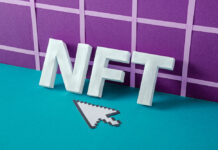
Bitcoin’s use in illegal online marketplaces peddling everything from drugs to child porn is on pace to set a record this year at more than $1 billion, according to a report by Chainalysis.While the proportion of Bitcoin transactions dedicated to illegal purchases is declining, about $515 million of the digital coin has already been spent this year on the so-called dark web, according to the firm, which helps companies such as cryptocurrency exchanges investigate and prevent illegal transactions. Dark-net spending in Bitcoin peaked in 2017, at $872 million, and declined last year as the coin’s price took a dramatic dive.
The findings are a reminder of the regulatory risks surrounding the digital tokens, which are beloved by criminals looking to preserve some degree of anonymity. Last month, the Financial Action Task Force — an inter-governmental organization focused on combating money laundering and terrorist financing — began mandating strict know-your-customer measures for crypto exchanges and custodians. Also in June, Europol met with companies in the space to trade tips on best practices in detecting crypto-facilitated crime.
Of all the illegal online marketplaces, Hydra is the largest, according to Chainalysis, which examined transactions on the Bitcoin blockchain to see how much was being spent on these sites. Drugs are the most prominent category of goods sold, but child porn and stolen credit-card information are also in demand, Chainalysis found. Bitcoin is the most popular cryptocurrency accepted on these marketplaces, followed by Monero, Chainalysis said.
While the growth in illicit Bitcoin spending may be alarming, a major caveat is that the proportion of Bitcoin transactions tied to illicit deals is declining. Illegal activity has accounted for less than 1% of all Bitcoin activity so far this year — down from 7% in 2012, according to Hannah Curtis, senior product manager of data at Chainalysis.



































